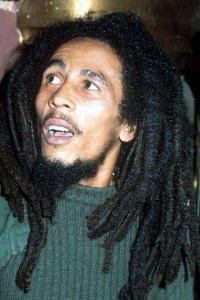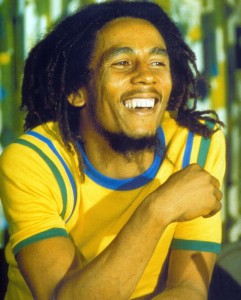 SAN JUAN –-
SAN JUAN –-The Jamaican singer was a pioneering artist in conveying the international public philosophy and lifestyle of this religion and lifestyle, which promotes African consciousness and black supremacy, and whose followers are identified by their dreadlocks and the sacramental use of marijuana, Sealy said.
Marley was one of the first reggae singers to publicly accept this religion in his native country, a place where the group was openly discriminated against, Ray Hitchins, lecturer at the Institute of Caribbean Studies and Reggae Studies Unit of the University of the West Indies in Jamaica, told Efe.
The artist, who died in 1981 at age 36 from cancer, helped promote the Rastafarian movement and later influenced, with his image and the international impact of his legacy, the Jamaican government’s recognition of Rastafari as a religion, said Stephen King, author of “Reggae, Rastafari and the Rhetoric of Social Control.”
“Politicians started to use reggae and Rastafari to find a new market of voters,” King said in an interview with Efe.
The use of images and sounds related to these two components in the 1972, 1976 and 1980 elections “paved the way for both, reggae and Rastafari, to be legitimized,” King said.

Hitchins, an ethnomusicology expert, said the Rastafarian image helped Marley distinguish himself from other artists internationally, drawing wide attention and shattering stereotypes.
“Bob Marley definitely propelled the image of the Rastafari movements in the world and for that, we must give thanks,” Sealy, a leader of an organization representing Rastafari movements in 13 Caribbean islands and territories, said.
Rastafarians believe that “ras” (Prince) Tafari Makonnen, Haile Selassie I’s name before being proclaimed emperor of Ethiopia in 1930, is a god incarnated and the maximum authority of the Rastafarian religion.
“We believe in the demand for reparations and repatriations. Since we were taken away from Africa, we must return to our homeland,” Sealy said.
The religion’s real aim is to “repatriate ourselves to Africa spiritually and physically,” Sealy said.

Rastafarians believe that Africa is the promised land and that is why there are approximately 20,000 followers in Jamaica looking to return to that “paradise.”
It is estimated that there are more than 1 million followers of the Rastafari religion and lifestyle worldwide.
In 2003, Jamaica recognized the Rastafarian movement as a religion, but the government said the decision did not include the legalization of marijuana, or “ganja,” which is used by Rastafarians for sacramental purposes.


You must log in to post a comment.